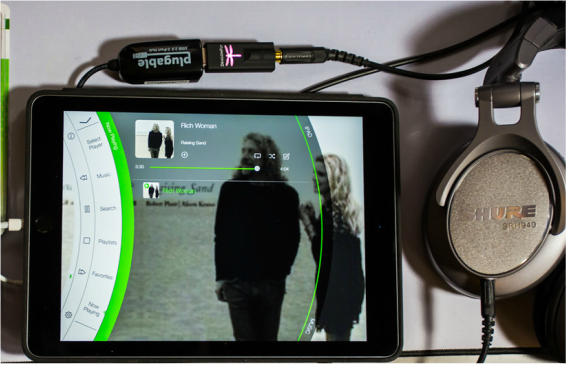Note: For the purpose of this article, when I refer to lossless, I am talking about Redbook CD 16/44.1 quality audio.
As I have mentioned in a prior post, I am switching to Apple Music because all things aren't equal.
I have seen several articles about Apple's decision to use 256k AAC files. Some are fine with compressed lossy files, some think they should have used lossless formats instead, and some think they should have a premium tier for those that want lossless. I agree with those that would wish for at least a premium, lossless tier.
One of the most memorable and discussed parts of Walt Isaacson's Steve Jobs Biography was the part where Steve Jobs was talking about the lessons he learned from his father. To quote the book:
"He loved doing things right. He even cared about the look of the parts you couldn’t see.”
To me, this represents Apple's brand and image more than anything else I have read or heard.
With that note, I realize that Apple started with 128 Kbps files on iTunes and have since increased their bit rates to 256k AAC files. In the past, I have always thought that these lossy bit rates were a necessary trade off to work with slow internet and cellular speeds and caps.
With Tidal (and Deezer on Sonos) proving that a modern service can offer lossless format streaming and HD Tracks showing us that high resolution downloads are possible, it begs the question of why Apple doesn't have a premium tier for downloads or streaming?
One person offered the point that it would be more expensive for Apple to offer lossless because their potential user base is larger than Tidal's. I don't believe it. As more users pay a premium, theoretically, the fixed costs (the price to house the 30 million lossless files) should get cheaper on a per person basis. The bandwidth required would go up, but I can't imagine a situation where Apple couldn't handle the bandwidth, not to mention that the extra users should easily cover the extra cost. Apple is the same company telling us that 16 GB iPhones have enough memory because we can store all of our files in the cloud. iTunes also streams 1080p movies with Dolby Digital soundtracks. I don't believe bandwidth is the issue.
The other point is that "people can't appreciate or hear the difference". First of all, I am waiting for any test that provides absolute proof of this assertion. I have yet to read any test results that have conclusively shown that we can't hear a difference. Most tests are set up based on statistical results of whether we can conclusively hear a difference.
Just a quick analogy: I have two small chocolate milkshakes available and one has a giant cockroach mixed in and the other doesn't. Next, I told you that we did a "blind test" and 8 out of 10 times our test subjects said they could taste the difference between the shake with the cockroach and the shake without the cockroach...inconclusive results under the typical audio ABX methodology.
"Typically, a 95% confidence level is sufficient for psychoacoustic experiments. In other words, we want to be confident that less than 5% of completely random test results would indicate a perceptible difference.
http://lsbaudio.com/publications/AES127_ABX.pdf
Which milkshake would you drink if you had the option? Most, I suspect, would choose the shake without the cockroach. Why? There is no conclusive test showing that a difference in taste exists. It is because they know there is a difference between the two milkshakes. If Baskin Robbins said that they had cockroaches in every milkshake, but it was inconclusive through ABX testing that you would actually taste the cockroach, how long would they be in business? Do you think it would damage their brand?
In the Steve Jobs quote above, he doesn't seem to be professing that Apple doesn't care about the inside of a MacBook case because most people, under most circumstances, wouldn't notice a difference or care. However, with audio they are taking the original file, removing bits, and hoping that under most scenarios, most people don't notice a difference or don't care. Sorry, to these ears, it doesn't sound like the same degree of end-to-end quality is being applied...and I don't need an ABX test to figure that out.
The other issue that I mentioned is cellular caps. That issue can be easily resolved by having the app default to a lower bit rate and making the user choose higher or lossless codecs. Every other service, with the exception of Apple Music, that I have used, already gives you that option.
To wrap things up, I think lossless audio fits in with Apple's philosophy of end-to-end premium quality and providing a maximum of 256k lossy files doesn't. That doesn't mean I will be switching to Tidal, it just means that in my mind, I know I have the equivalent of an unfinished, sloppy Mac enclosure that I have to live with in order to use OSX (Siri).
If you know of some other reason that Tidal and Deezer can provide lossless streaming and Apple can't, please let me know. My guess is that they have pushed the "Mastered for iTunes" at 256k for so long that they are ingrained in that bit rate, but I don't know for sure.

 RSS Feed
RSS Feed